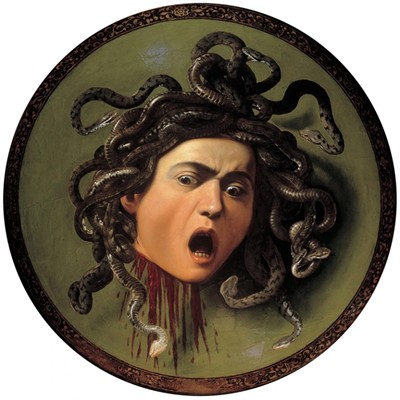
To see the previous installments, click on the following links: #1, #2 , #3, #4, #5, #6, #7, #8, #9, #10, #11, #12, #13, #14, #15, #16, #17, #18, #19, #20, #21, #22, #23
The strategy of Lucius's family was as relentless as it was calculated, unfolding with precision in every corner of Rome and Pompeii, where their grief and yearning for justice translated into a fierce and almost unstoppable smear campaign. From the early hours of dawn, the walls of the streets were splattered with accusatory messages and graffiti that depicted the figure of Marcus's son as a symbol of treason and dishonour, texts that in tight letters and angry strokes carried the voice of an outraged society. The pamphlets, distributed in squares and marketplaces, depicted a distorted, bleak image of a young man driven by violence and lacking respect for the values of res publica.
In addition, Lucius's family was able to take advantage of the scathing popular poets, who, with their sarcastic verses, transformed the rumours into satires that spread like wildfire. Bards declaimed before scandal-hungry audiences, installing in the public mind the image of Marcus's son as a dangerous man, alien to family piety and respect, who was said to have betrayed the very essence of Roman virtue.
Lucius's father, driven by mourning and an indomitable lust for revenge (ultio), summoned friends, relatives and loyal clients to join the chorus of dissenting voices. He gathered testimonies from those who claimed to have witnessed acts of brutality or contempt in the young man, manipulating each story to fit the profile they sought to build: that of a murderer with no possible redemption. Skillfully, the family appealed to the code of honour, invoking the traditions of Roman justice and the ancient values of virtus and pietas, pitting the truth of the facts against a higher truth: that of a Rome that would not tolerate the outrage of its citizens.
Not yet satisfied, they sought support in patronage relations, turning to influential people who could tip the scales of imperial justice. They knew that in this delicate game, every gesture, every word, counted, and they went, with firm determination, to Domitian's doors. Vespasian's scales were uncertain, but Domitian, a pretender to the throne, could tip the balance.
To be continued
Header Image:
Caravaggio. The Head of Medusa (1599). Canvas on wood, 60 x 55 cm. Uffizi Gallery, Florence.
I truly believe that manipulating people, especially in politics, often makes things worse. This is an example of how the people of Rome were influenced.
These episodes are intended to describe a Roman society that is not very far from the manipulation of modern societies and where, in my point of view, the same strategies were used to confuse people as today. There is only one difference and that is in the use of technology. Thank you very much, @yumiyumayume and @cocoPop
I so agree! This amazed me because we never learn, lol.